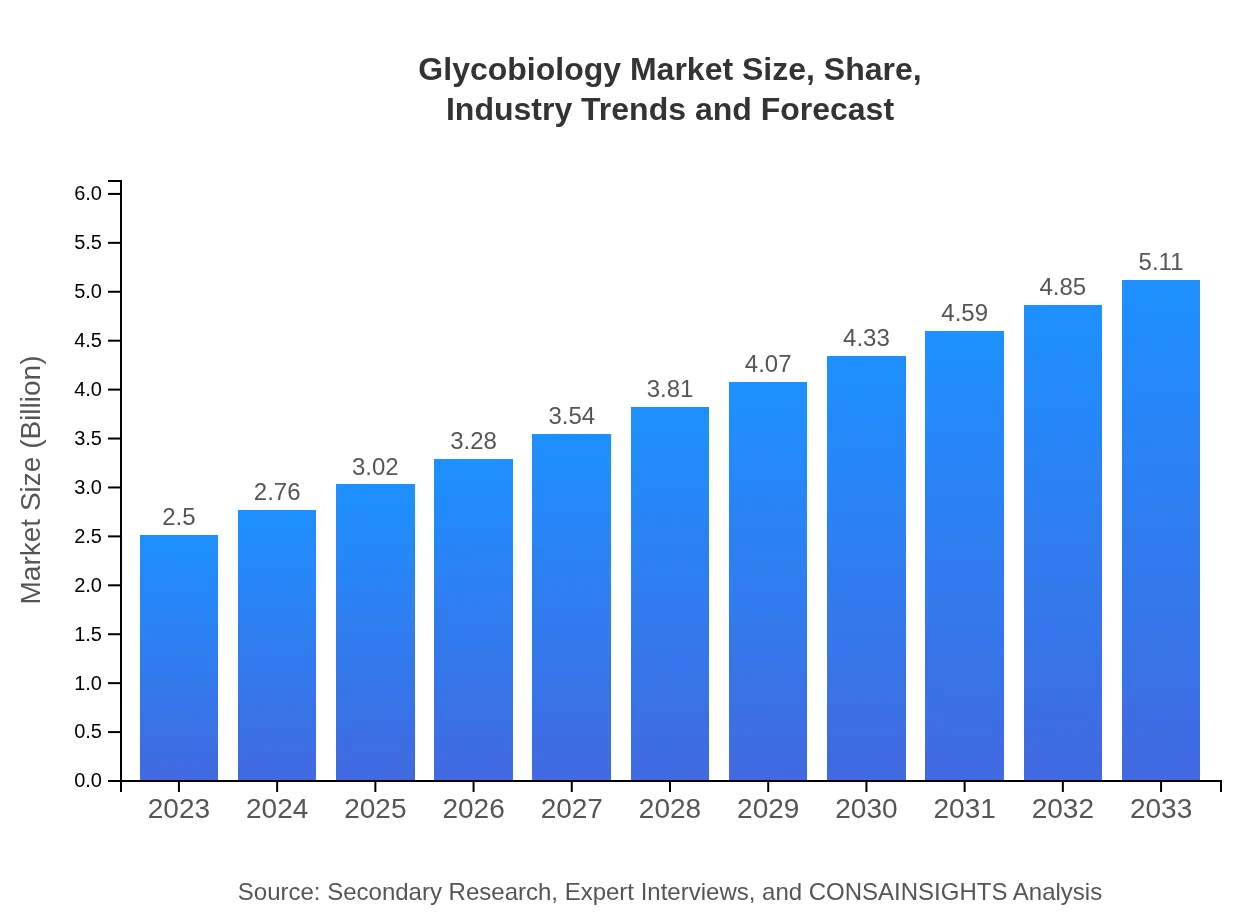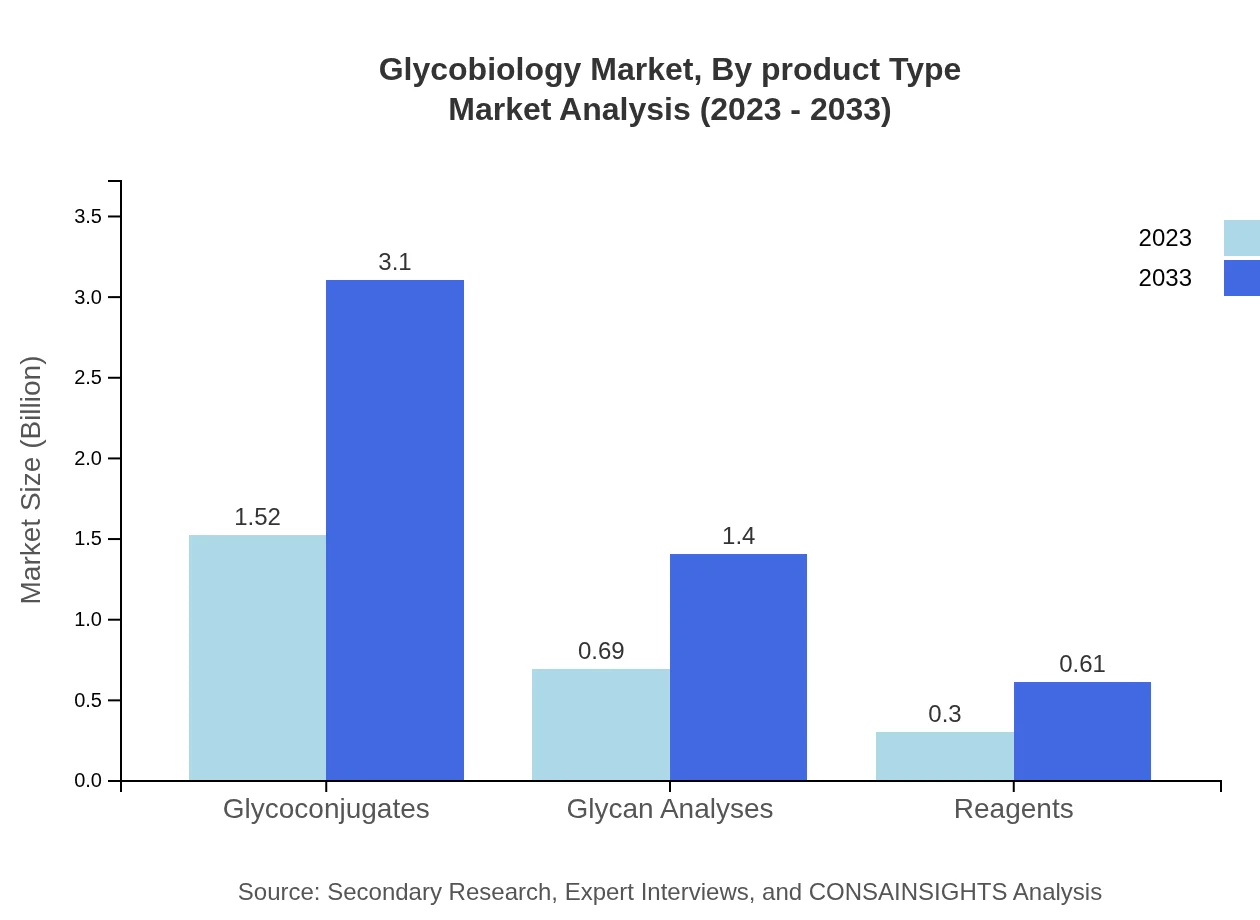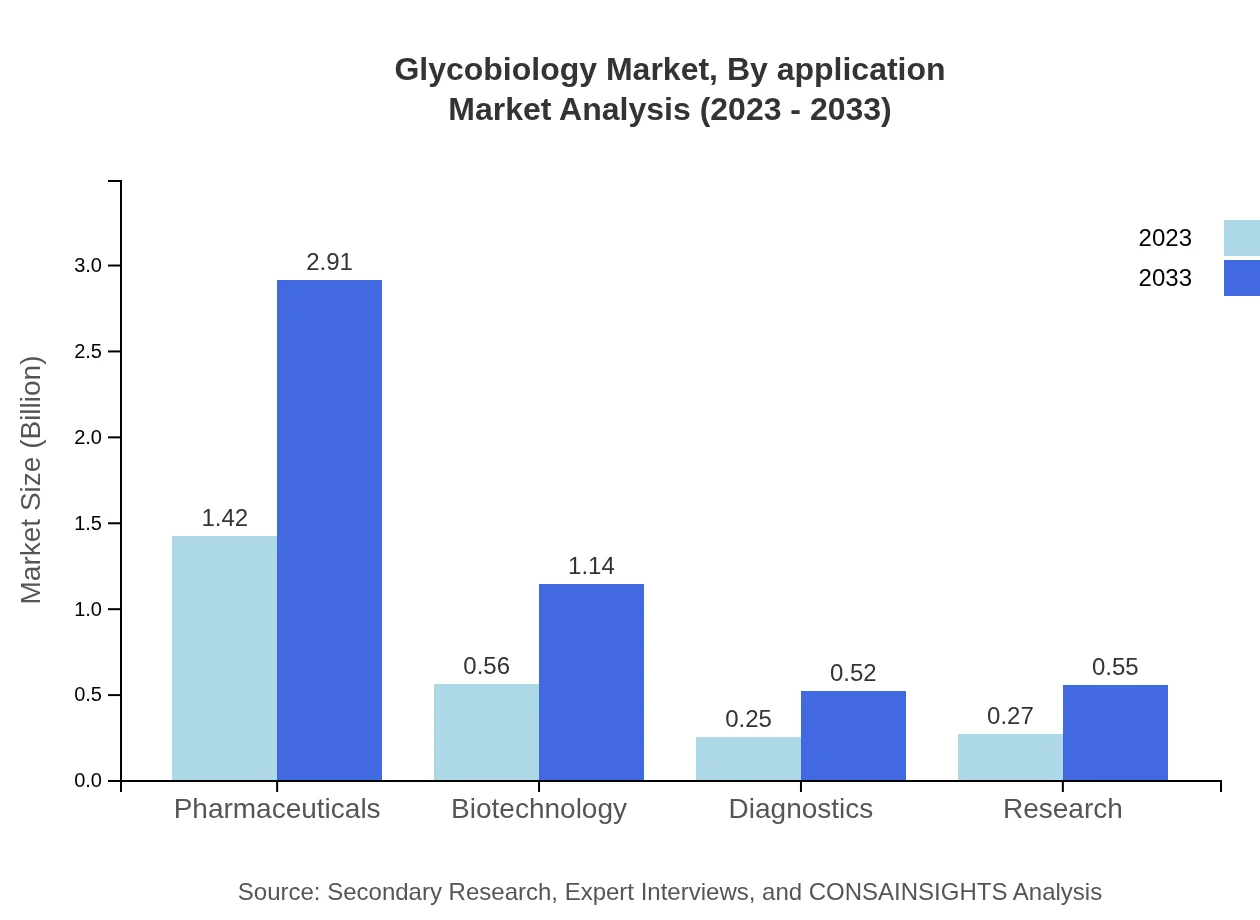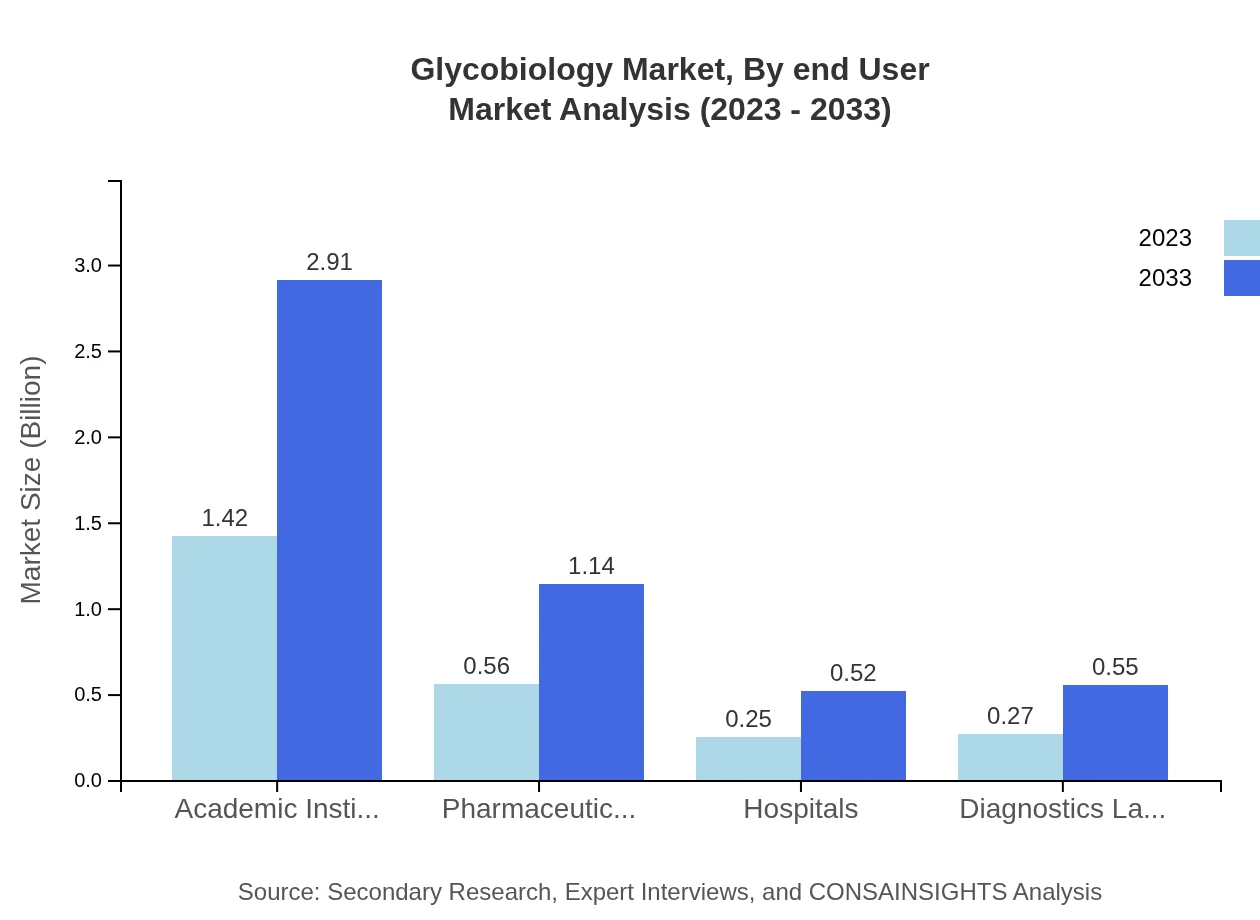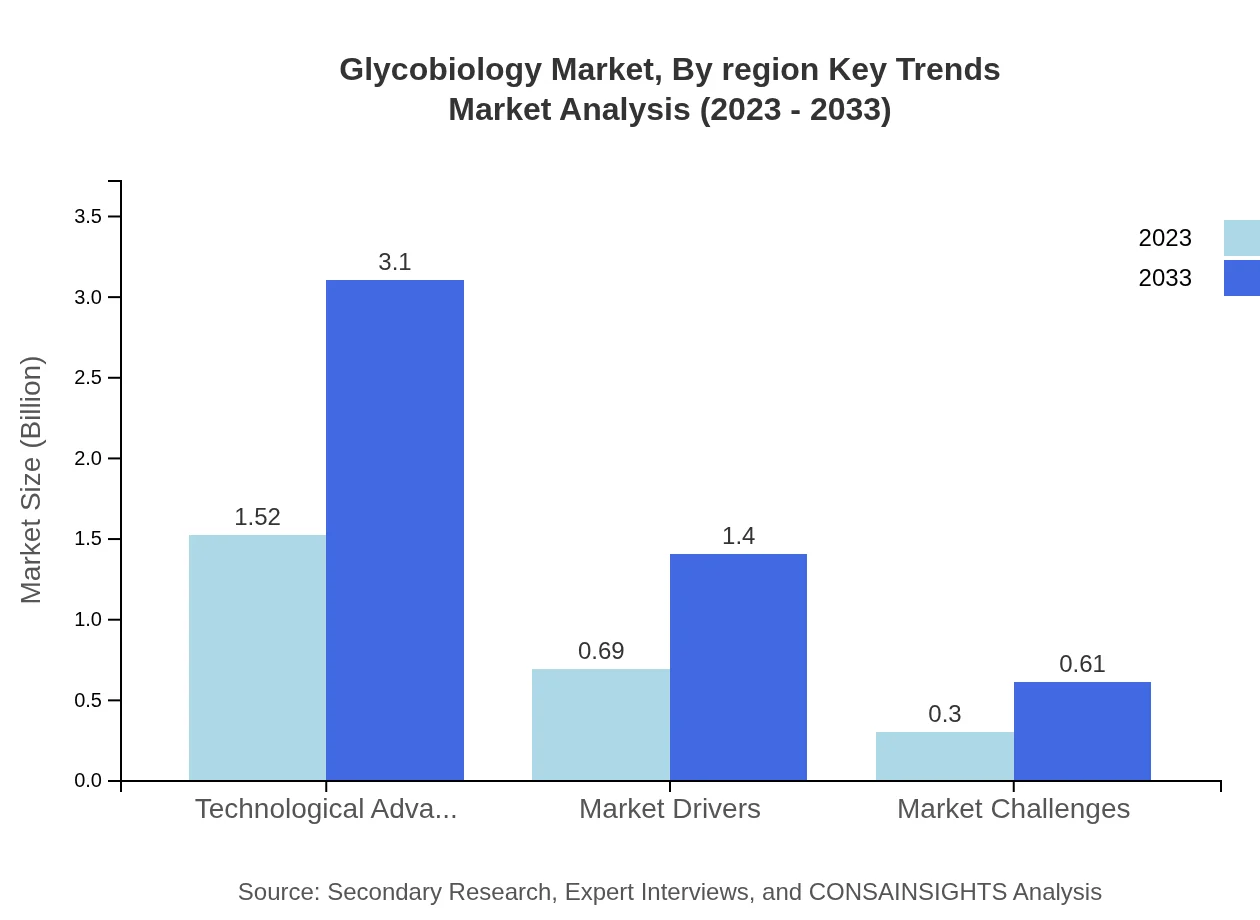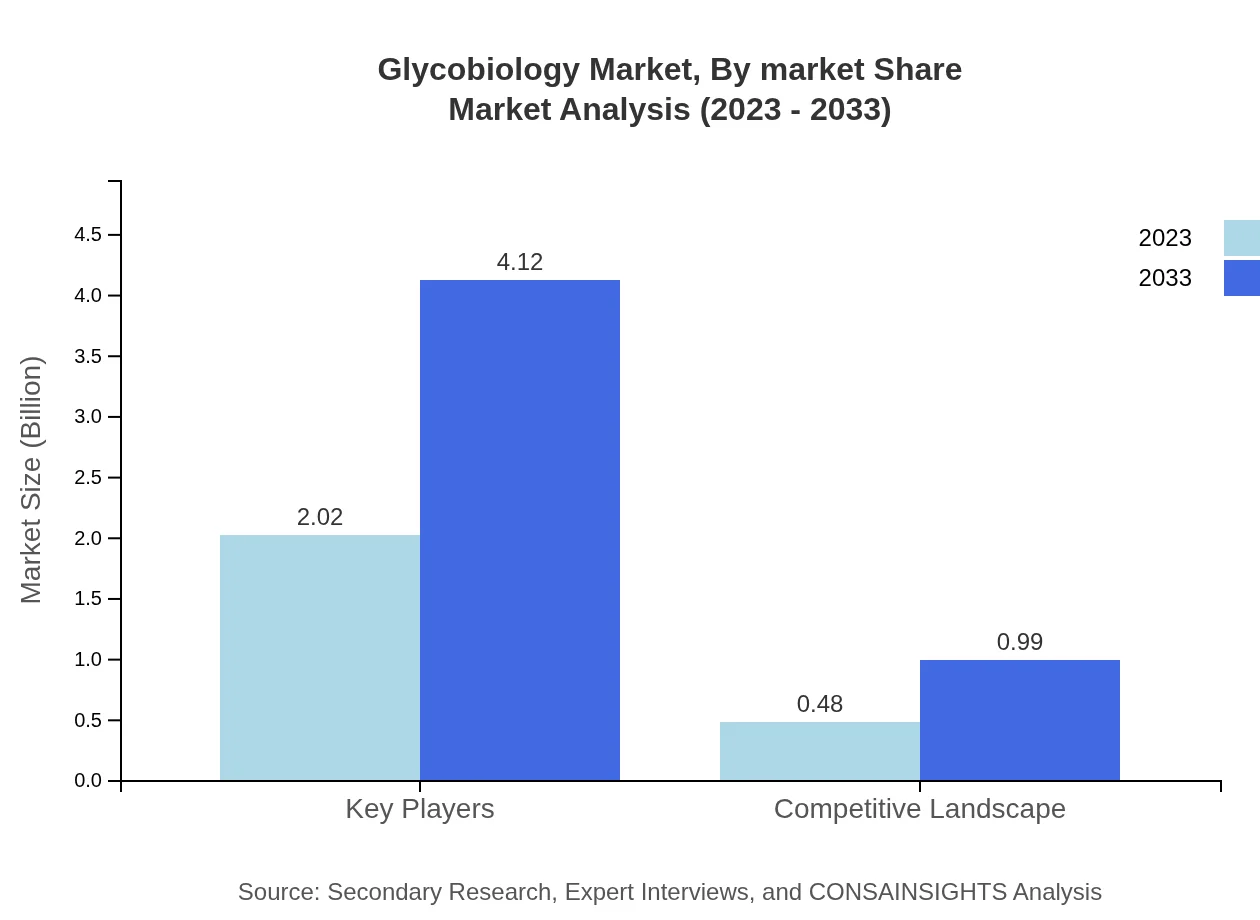Glycobiology Market Report
Published Date: 31 January 2026 | Report Code: glycobiology
Glycobiology Market Size, Share, Industry Trends and Forecast to 2033
This market report on Glycobiology spans insights from 2023 to 2033, detailing market trends, size, segmentation, and growth potential. It also presents regional analyses and key players in the industry, providing an overarching view of the market landscape in Glycobiology over the forecast period.
| Metric | Value |
|---|---|
| Study Period | 2023 - 2033 |
| 2023 Market Size | $2.50 Billion |
| CAGR (2023-2033) | 7.2% |
| 2033 Market Size | $5.11 Billion |
| Top Companies | GlycoTech, ProZyme |
| Last Modified Date | 31 January 2026 |
Glycobiology Market Overview
Customize Glycobiology Market Report market research report
- ✔ Get in-depth analysis of Glycobiology market size, growth, and forecasts.
- ✔ Understand Glycobiology's regional dynamics and industry-specific trends.
- ✔ Identify potential applications, end-user demand, and growth segments in Glycobiology
What is the Market Size & CAGR of Glycobiology market in 2023?
Glycobiology Industry Analysis
Glycobiology Market Segmentation and Scope
Tell us your focus area and get a customized research report.
Glycobiology Market Analysis Report by Region
Europe Glycobiology Market Report:
The European Glycobiology market is anticipated to grow from $0.76 billion in 2023 to $1.56 billion by 2033, driven by collaborative academia-industry partnerships and increasing focus on complex carbohydrate research in drug development.Asia Pacific Glycobiology Market Report:
In the Asia-Pacific region, the Glycobiology market is expected to grow from $0.47 billion in 2023 to $0.95 billion in 2033, reflecting a burgeoning interest in biological research and increased investment in health technologies. Countries like China and Japan are pivotal players, driving research initiatives and collaborating with global firms.North America Glycobiology Market Report:
North America stands as the largest market, with a projected growth from $0.97 billion in 2023 to $1.98 billion in 2033. The presence of leading pharmaceutical companies and a robust infrastructure for research make the region a key player in Glycobiology advancements.South America Glycobiology Market Report:
The South American Glycobiology market is relatively nascent, with a market size of -$0.01 billion in 2023. However, expectations indicate a gradual stabilization as research and clinical applications begin to emerge, drawing attention from international investors.Middle East & Africa Glycobiology Market Report:
The Middle East and Africa market is expected to double, growing from $0.31 billion in 2023 to $0.63 billion in 2033. The region is gaining traction in biotech innovations, with numerous initiatives aimed at harnessing glycobiology for local healthcare advancements.Tell us your focus area and get a customized research report.
Glycobiology Market Analysis By Product Type
The Glycobiology market is significantly driven by the demand for Glycoconjugates, which was valued at $1.52 billion in 2023 and is expected to reach $3.10 billion in 2033. Glycan analyses are projected to increase from $0.69 billion to $1.40 billion, driven by advancements in analytical techniques. Reagents are expected to also grow from $0.30 billion in 2023 to $0.61 billion in 2033, reflecting their critical role in glycobiology research.
Glycobiology Market Analysis By Application
The applications of Glycobiology span healthcare, diagnostics, and research sectors. Therapeutics led the market in 2023 due to increasing applications in cancer treatment and vaccine development. The diagnostics segment is also growing due to enhanced glycan analysis techniques, while academia is increasingly integrating glycobiology into their curricula to support the development of future innovations.
Glycobiology Market Analysis By End User
Academic Institutions are the primary end-users in the Glycobiology market, with a size of $1.42 billion in 2023, expected to reach $2.91 billion by 2033. Pharmaceutical companies represent a significant share, also projected to grow from $0.56 billion to $1.14 billion. Hospitals and diagnostic laboratories are smaller but growing segments, benefitting from advances in glycobiology technologies.
Glycobiology Market Analysis By Region Key Trends
Key trends within the Glycobiology market include a shift towards personalized medicine and automation in glycan analysis. Technological innovations are enabling more accurate and efficient research outcomes, while data analytics continues to play a pivotal role in the interpretation and application of glycobiological data.
Glycobiology Market Trends and Future Forecast
Tell us your focus area and get a customized research report.
Global Market Leaders and Top Companies in Glycobiology Industry
GlycoTech:
GlycoTech specializes in glycan analysis and provides cutting-edge technologies for quality control and drug development related to glycobiology.ProZyme:
ProZyme is recognized for developing reagents and products that streamline glycan research and analysis, making significant contributions to biopharmaceutical applications.We're grateful to work with incredible clients.









FAQs
What is the market size of glycobiology?
The global glycobiology market is currently valued at approximately $2.5 billion in 2023 and is projected to reach a substantial market size by 2033, growing at a CAGR of 7.2%. This growth is indicative of the increasing applications and advancements in glycobiology.
What are the key market players or companies in the glycobiology industry?
Key players in the glycobiology market include leading pharmaceutical and biotechnology companies that are pivotal in research and development. Their innovations greatly influence market dynamics, particularly in drug development and disease treatment related to glycobiology.
What are the primary factors driving the growth in the glycobiology industry?
Factors driving growth in the glycobiology industry include increased funding for research, rising adoption of glycobiology in therapeutics, and innovations in technology that enhance glycan analysis and applications in various sectors such as healthcare and pharmaceuticals.
Which region is the fastest Growing in the glycobiology market?
The fastest-growing region in the glycobiology market is North America, with a market growth from $0.97 billion in 2023 to $1.98 billion by 2033. Other regions, such as Europe and Asia Pacific, also exhibit significant growth potential in this sector.
Does ConsaInsights provide customized market report data for the glycobiology industry?
Yes, ConsaInsights offers customized market report data tailored to specific needs in the glycobiology industry. This ensures that stakeholders can obtain detailed insights, including market trends and forecasts that align with their strategic objectives.
What deliverables can I expect from this glycobiology market research project?
Deliverables from the glycobiology market research project include comprehensive reports detailing market size, growth forecasts, regional analysis, and competitive landscape, providing stakeholders with actionable insights essential for strategic decision making.
What are the market trends of glycobiology?
Current trends in the glycobiology market include increasing investment in glycan research, advancements in glycan therapeutics, and the growing integration of glycobiology into diagnostic methods and personalized medicine, reflecting a shift toward targeted treatment options.

